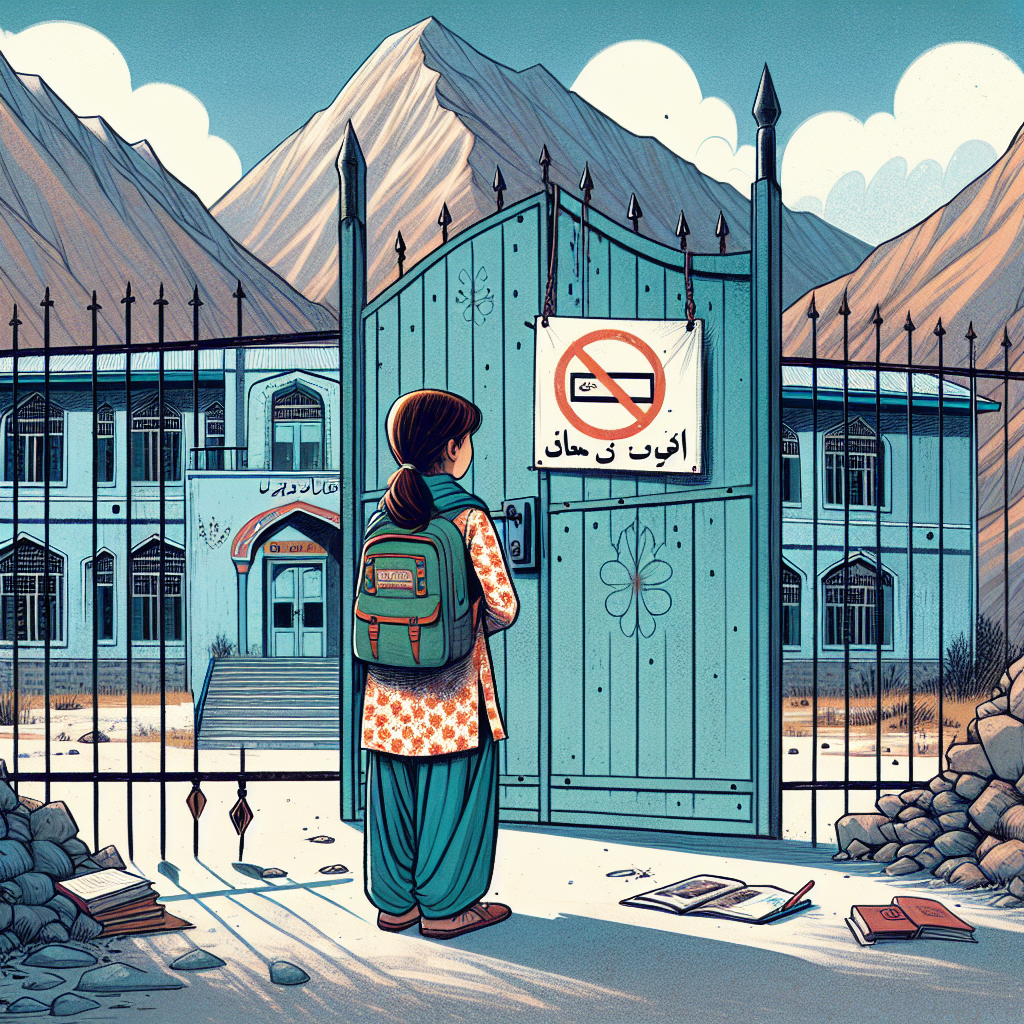Despite Taliban Ban, Afghans Strongly Back Girls’ Right to Education: UN Study
The report is based on a nationwide, door-to-door survey of over 2,000 Afghans, capturing sentiments from both rural and urban populations.

- Country:
- Afghanistan
A new UN Women Gender Alert has revealed overwhelming support among Afghans for girls’ right to education, even as the Taliban continues to enforce a ban on secondary schooling for girls nearly four years after its return to power. The findings underscore the deep desire for change in a society where restrictions on women and girls have reached unprecedented levels.
Broad Support Across Gender and Geography
The report is based on a nationwide, door-to-door survey of over 2,000 Afghans, capturing sentiments from both rural and urban populations. Results showed that 92 per cent of respondents consider it “important” for girls to continue their schooling.
-
In rural areas, 87 per cent of men and 95 per cent of women expressed support.
-
In urban settings, the figures rose to 95 per cent for both men and women, demonstrating near-universal agreement.
“This is almost always the first thing girls tell us – they are desperate to learn and just want the chance to gain an education,” said Susan Ferguson, UN Women’s Special Representative in Afghanistan. “Families also say they want their daughters to have that dream. They know that literacy and learning can change the trajectory of a girl’s life, in a country where half the population is living in poverty.”
The Cost of the Taliban’s Restrictions
The ban on girls’ education is only one part of a wider system of restrictions that has systematically erased women’s rights since 2021. Women are barred from working in most sectors, severely restricted in their mobility, and largely excluded from public life.
A UN Women telesurvey from July–August 2025 found that 97 per cent of Afghan women reported a negative impact on their lives due to the Taliban’s ban on women working for NGOs. Humanitarian organizations also report that more than half of NGOs have been unable to reach women and girls with essential services such as healthcare, food aid, and psychosocial support.
Women’s Resilience and Mental Health Challenges
Despite the severe restrictions, many Afghan women continue to hope for a different future: 40 per cent of women surveyed said they still imagine a future where equality and change are possible. Yet, optimism exists alongside profound mental health struggles.
-
Nearly three-quarters of women described their mental health as “bad” or “very bad.”
-
Three-quarters of women said they had no influence over community decisions, half reported no influence within their extended family, and one-quarter felt powerless even within their household.
-
Mobility remains drastically unequal: 14 per cent of women leave their homes only once a week, compared to just 2 per cent of men. Meanwhile, only 41 per cent of women step outside daily, compared to 88 per cent of men.
These findings come from joint consultations conducted by UN Women, the UN Assistance Mission in Afghanistan (UNAMA), and the International Organization for Migration (IOM) earlier this year.
A Crystallizing System of Control
The report paints a picture of a “crystallizing” system of restrictions where Afghan women and girls are confined to the private sphere, excluded from education, work, and decision-making. These restrictions are not only devastating for women but also undermine the country’s broader prospects for social and economic recovery.
According to UN Women, the near-universal Afghan support for girls’ education signals both a strong cultural and social foundation for change and an urgent need for the international community to prioritize the rights of women and girls in Afghanistan in all diplomatic and humanitarian engagements.
Global and National Implications
The ban on girls’ secondary education and women’s work has drawn widespread condemnation from the United Nations, human rights groups, and international governments. The policies directly violate international treaties to which Afghanistan is a party, including the Convention on the Elimination of All Forms of Discrimination against Women (CEDAW) and the International Covenant on Civil and Political Rights (ICCPR).
Yet, as the survey shows, the Afghan people themselves remain steadfast in their support for girls’ education. This widespread backing could serve as a foundation for future reforms, should political circumstances allow.
A Call for Urgent Action
The UN Gender Alert concludes by calling on the Taliban authorities to lift restrictions on education and work for women, ensure their freedom of movement, and protect their right to participate in public and community life.
At the same time, it urges the international community not to normalize the current status quo. “The Afghan people want change,” the report emphasizes, “and the voices of women and girls must be at the center of shaping Afghanistan’s future.”
ALSO READ
Australia's Controversial Deportation Deal with Nauru: A Human Rights Dilemma
Costa Rica’s Pineapple Sector Advances Human Rights Due Diligence with ILO Support
U.S. Withdraws from U.N. Human Rights Review: A Global Implication
US Skips UN Human Rights Review, Sparking Global Concerns
UN Experts Warn Against Regression on Gender Equality and Human Rights










